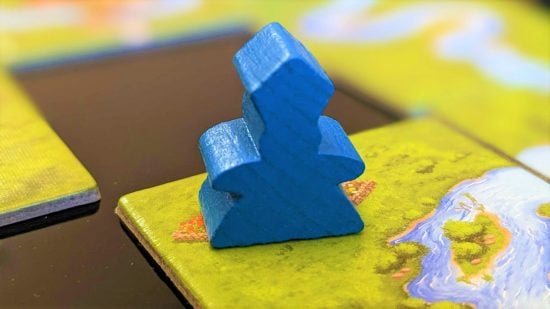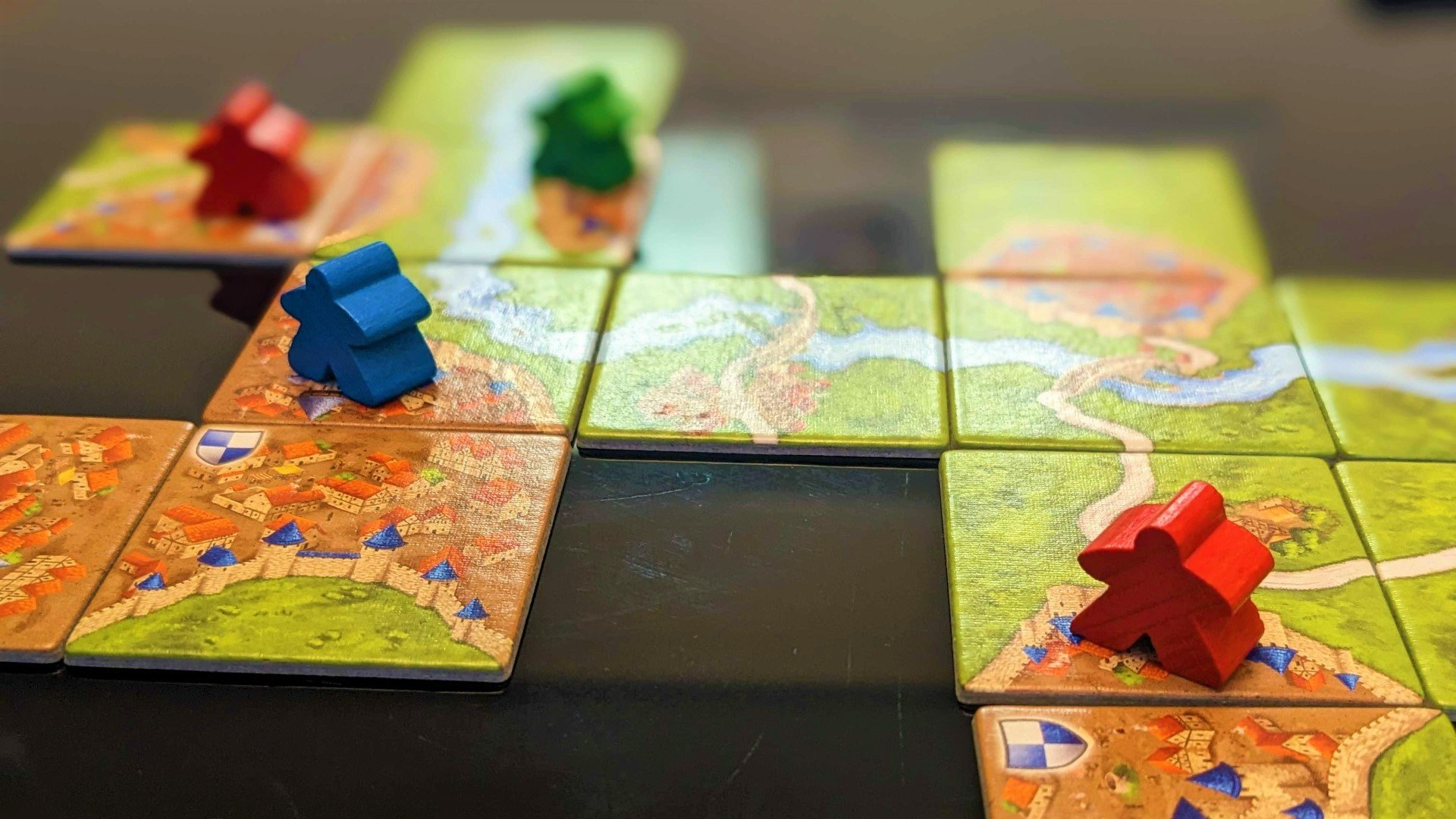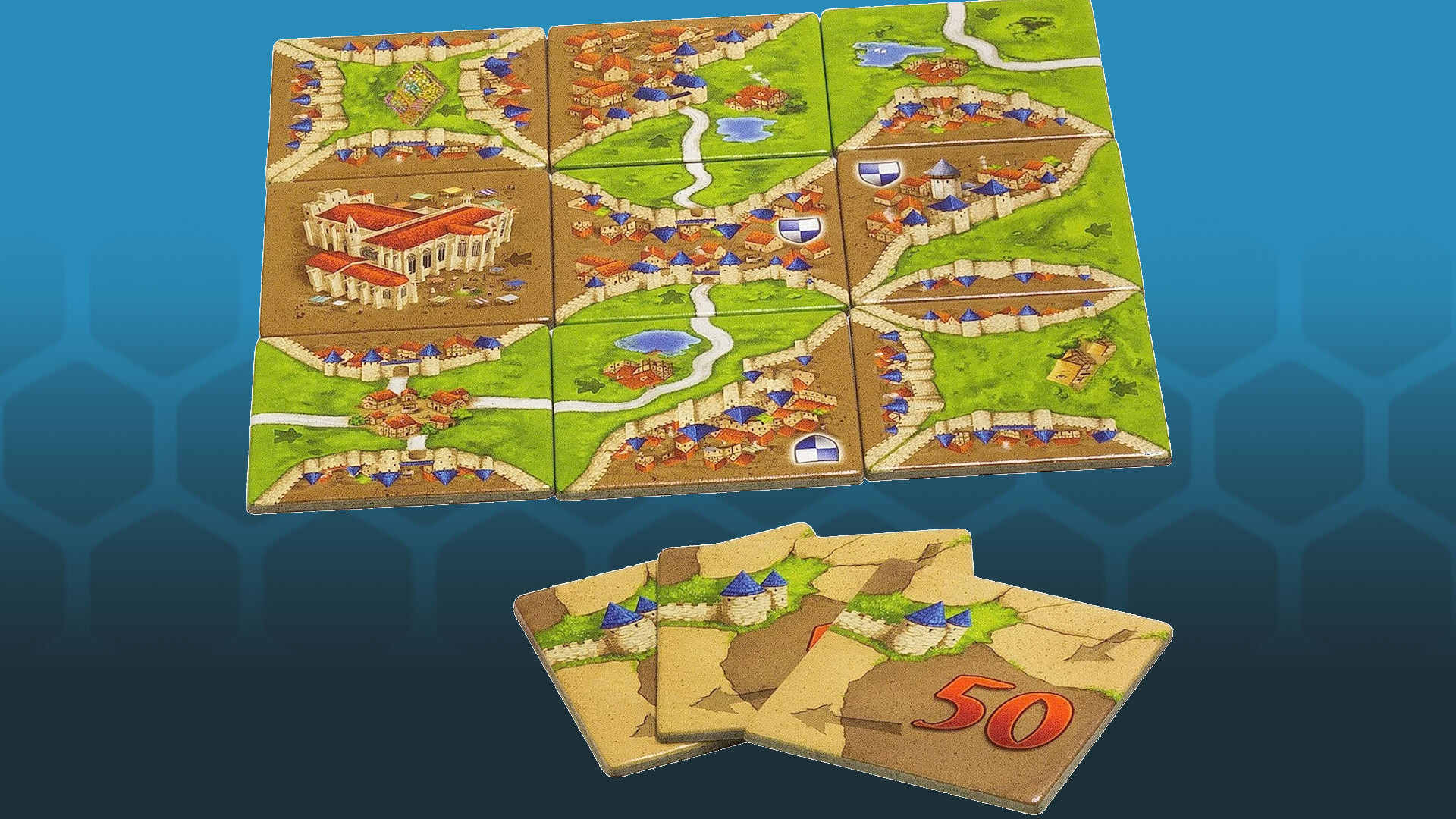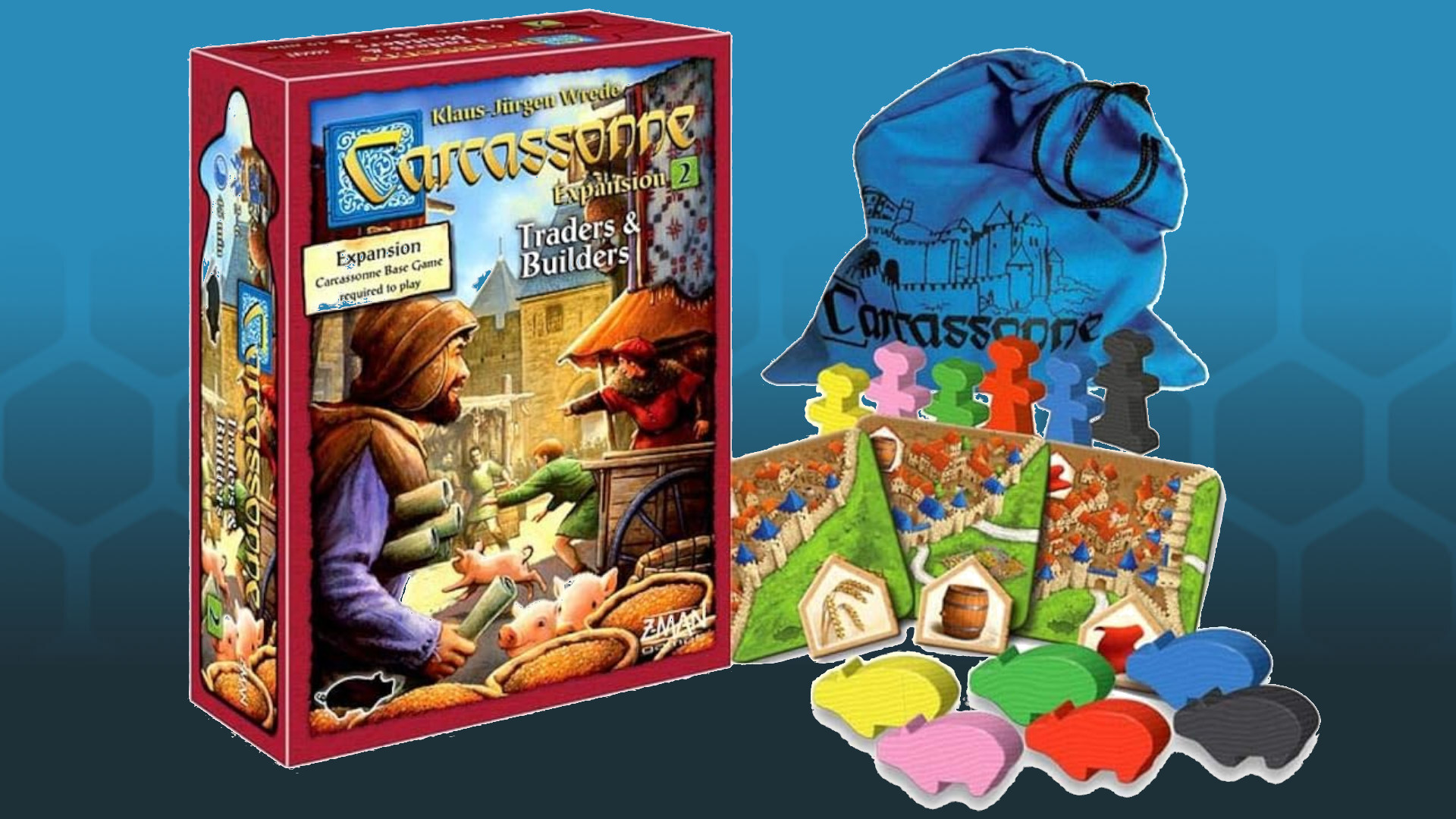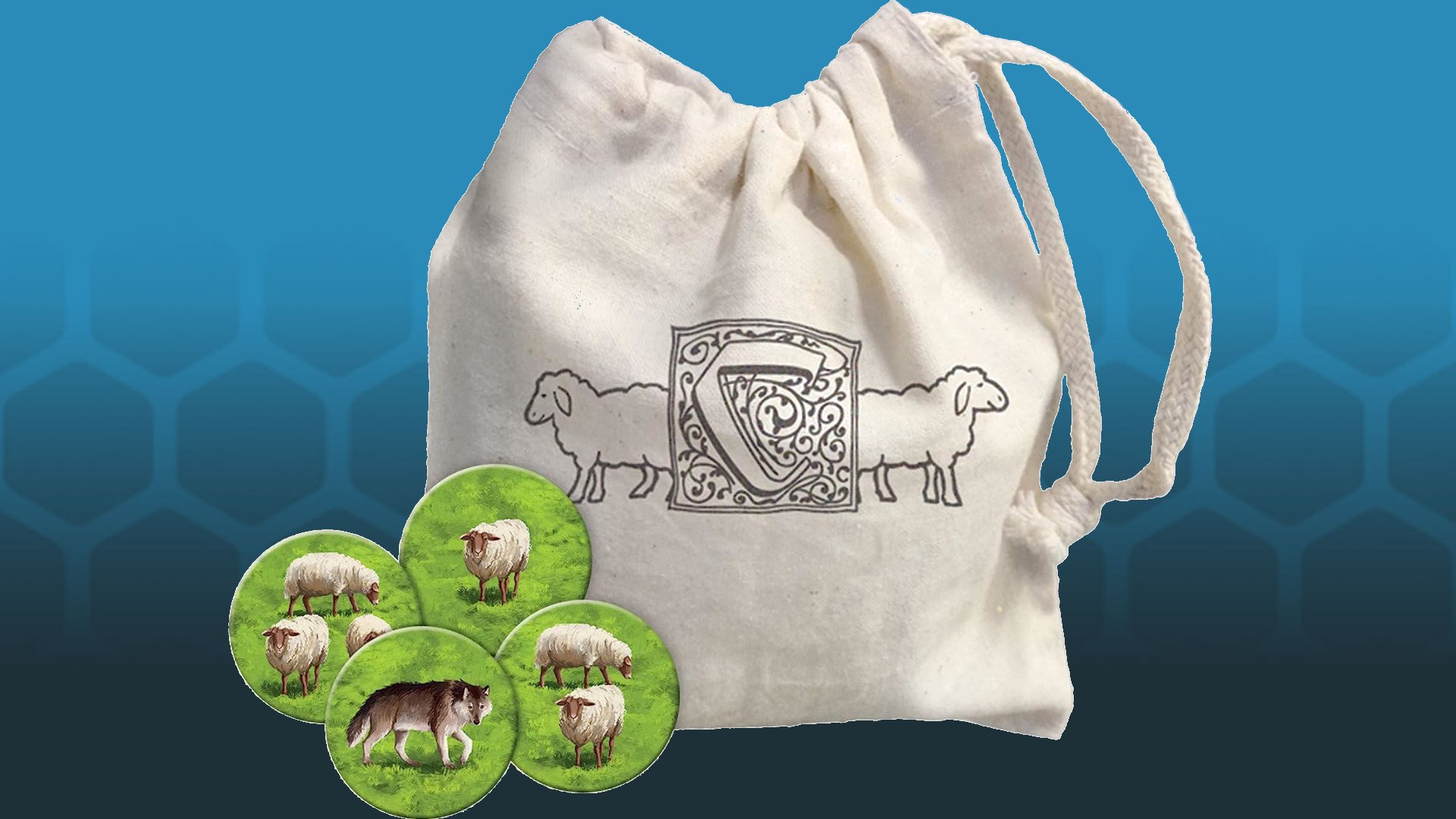Carcassonne has been part of the tabletop hobby for decades now, so it’s no surprise there’s a huge range of Carcassonne expansions to choose from. From the mini to the massive, each of these supplements adds new titles, rules, or meeples to your landscape. We’ve made a list of the very best Carcassonne expansions to help you sort the wheat from the chaff.
We consider Carcassonne one of the best board games out there, particularly if you’re looking for gateway games or tile games to try. Just check out our Carcassonne review if you don’t believe us. However, there’s always room for improvement – so here are our favourite Carcassonne expansions to broaden your horizons.
These are the best Carcassonne expansions:
- The Abbot & the River
- Inns & Cathedrals
- Traders & Builders
- Hills & Sheep
The Abbot & the River
The Abbot and the River are two mini expansions that have been packaged with the core game for many years now. Each adds a new aspect to Carcassonne without reinventing the wheel. And since they’re free with the base game, they’re easily accessible – we’ve almost never played a game without them.
Here’s how the mini expansions work. First, there’s the river, which alters your starting board. The first tile on the board must be the river’s source, and players take turns adding the next part of the river until it reaches a lake. Various roads and cities to claim appear as the river runs its natural course. It’s not a major overhaul, but the river adds a nice bit of variety to your early game.
The abbot expansion introduces a new, unique meeple, as well as tiles with gardens on. Any time a monastery or a garden is placed, you can choose to place your abbot instead of a regular meeple.
Both a monastery and a garden are complete when surrounded by eight tiles – however, if you played an abbot, you can choose to remove them early. You won’t get the full nine points, but the ability to increase your pool of meeples or abandon an impossible build at a moment’s notice is surprisingly powerful.
Inns & Cathedrals
Inns & Cathedrals might be the definitive Carcassonne expansion to buy first. It allows a sixth player to join the game, and it adds some new strategic elements without too much additional complexity.
The titular inns and cathedrals give you the chance to score major points, but this opportunity comes with a risk. Any road with an inn scores two points per tile instead of one, and cities featuring a cathedral score three points per tile and coat of arms instead of two. However, if your incomplete roads and cities feature inns and cathedrals, they’ll score nothing at all in the end-game calculations.
This expansion adds another new feature to the game, too: big meeples. These can be placed instead of regular meeples, and they represent two meeples rather than one. When two or more players are competing for control of a city, one oversized meeple can make a big difference.
Traders & Builders
Traders & Builders is the expansion to get if you’d like things to get a little more complex. The first new addition to the game is goods tokens. If you place a tile that completes a city, you gain goods tokens for any goods symbol on the city’s tiles – this is regardless of the meeples that control the city. You can have no meeples in a city at all, but placing the final tile gives you all the goods. Players with the most of a type of goods score at the end of the game, so this is a neat way to add depth to scoring and encourage players to help their opponents finish cities.
As well as new tiles, you can expect new meeples in Traders & Builders. The builder can be added to roads or cities you already have a meeple on. From then on, any time you add to the project your builder is on, you can immediately draw and play a second tile.
And then there’s the pig. This tiny wooden hog can be placed in a field occupied by your farmer, and it stays there until the end of the game. At this point, as long as you have control of this field, you score four points instead of three for each completed city on the field’s borders. Bear in mind pigs don’t count when calculating who controls the field.
Hills & Sheep
If you’re a fan of push-your-luck games like Quacks of Quedlinburg, you’ll likely enjoy the Hills & Sheep expansion. It introduces hills, vineyards, sheep, and shepherds – as well as some hungry wolves.
Any time you place a shepherd in a field, you must draw a token from the expansion’s cloth bag. A sheep token gets placed face-up in the field, but a wolf token will chase your shepherd back to your meeple supply. If you manage to set your shepherd up with a flock, you now face a choice any time you expand your field: do you grow your flock, or do you lead them to the stable for scoring?
Growing the flock involves drawing a new token from the bag. If it’s a sheep, you get new flock members equal to the number of sheep on the token; if it’s a wolf, your entire flock flees, and you return all sheep tokens to the bag without scoring.
Hills and vineyards also expand the Carcassonne landscape in this box. When placing a hill, you must draw a new tile and place it underneath the hill without looking at it. When scoring a city, road, or field you occupy, if your meeple is on an attached hill tile, you’ll automatically win any tie breaks. Finally, the vineyards add a new element of scoring to monasteries, granting three extra points per vineyard on the surrounding tiles.
